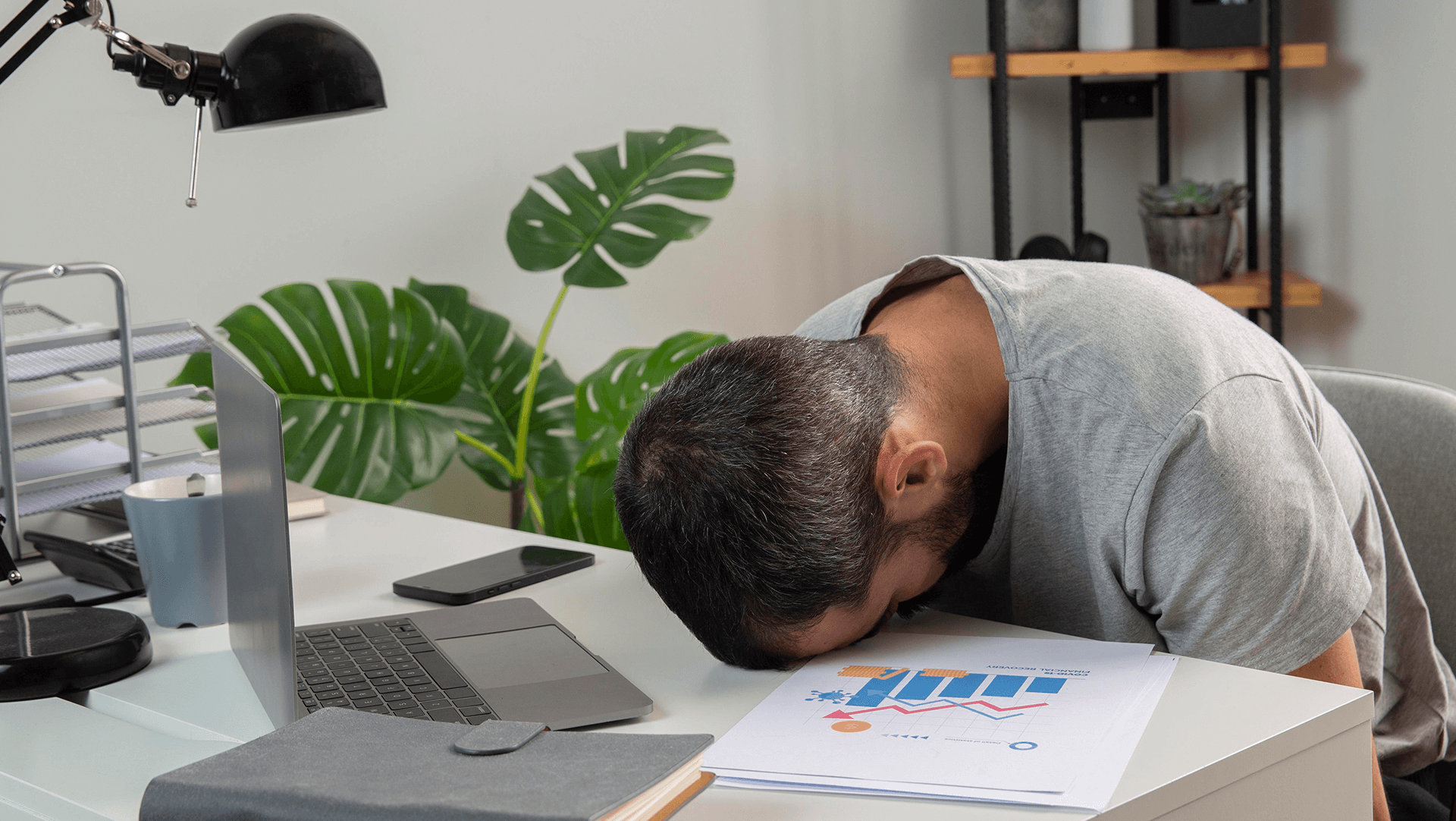
Beating burnout: tips for work-life balance
When the highly successful American businesswoman and HuffPost founder Arianna Huffington physically collapsed from exhaustion, she turned the experience into a wake-up call about the need for better work-life balance. Recognising the link between well-being and performance, she went on to establish a new global business that raises awareness about managing stress and preventing burnout.
Although most of us don't deal with the demands faced by a high-profile business celebrity, we can relate to the difficulties of juggling work and personal life. When you are busy building your career, it can be easy for the working day to extend well into the night and weekends, making family time hard to come by – let alone ‘me time'. Not only do our personal relationships suffer, but there is a growing body of scientific evidence that long hours at work are a direct contributor to serious health problems such as stroke. To prevent reaching crisis point, it's critical to find the right balance between work and well-being.
We've put together some ideas to help:
Unplug
With the rise of devices that enable us to stay connected 24/7, it is hard to resist the temptation to access your work anytime, anywhere. Try turning the notifications off on your work emails outside of work hours – why not immerse yourself in a great book instead? Once the weekend rolls around, keep the work laptop out of sight, or, if non-negotiable deadlines are looming, allocate a specific portion of the weekend to log on and focus on that specific task only – don't go trawling through your inbox!
You might even choose to invest in a separate phone or laptop for your home life, so you can make a clear physical separation between work and personal activities.
Set work hours and boundaries
Setting yourself clear boundaries is an important way to avoid burnout. Once the workday has ended, try to avoid worrying about outstanding tasks or contacting your co-workers about any queries that come to mind. These tasks will still be there in the morning. If you do find it more productive to work outside of the traditional hours, or your work requires meetings across time-zones, then reduce your work hours to reflect those added demands.
Setting boundaries with your boss and colleagues is also important – make them aware of what hours you aren't available or any commitments in your personal life that are non-negotiable. Ensure your email signature and out-of-office message clearly includes your non-work hours and an alternative contact person for urgent queries. Another clever way to set expectations is to note forthcoming annual leave at the bottom of your email signature so that your boss and colleagues know you won't be attending meetings during that time.
Get enough sleep
Inadequate sleep is both a cause and a symptom of stress, and often a precursor to burnout. Lack of quality sleep is a common and expensive problem in Australian workplaces, costing billions of dollars in lost productivity, contributing directly to chronic illness and increasing the risk of serious accidents and poor decisions in the workplace.
While it's tempting to stay up late and finetune that PowerPoint presentation, most adults need between 7-9hours of sleep a night to function at their best. Set up a regular bedtime routine, switch off screens an hour before you retire, get everything ready for the next day's work and try using a meditation app when you turn the light off.
Take up a hobby
Whether it is online salsa classes, painting sessions or language lessons, finding a hobby that allows you to unplug and forget about work can help you to discover new skills, build new friendships and experience an improved sense of wellbeing. Having a hobby with a designated starting time can also force you to log-off from work on time, ensuring that you aren't stuck at your desk well past work hours.
Far from undermining your work commitments, an enjoyable hobby may even help improve the quality of your output and advance your career prospects by showing potential employers that you have a creative bent and a willingness to try new things.
Take some leave
Recent research shows that Australian employees have accrued a massive 140 million days of annual leave. Many workers are reluctant to take time off, feeling that there is never a good time to be absent from their role. But think of a break as an investment in your own well-being and a proven way to improve your productivity. Talk to your boss or HR – you may well find they are wanting to reduce accrued leave for business reasons. A great break is good for body and mind so go ahead and take a week off for a ‘staycation' pottering around the garden – but lock the laptop in the cupboard!
Contractors are often loath to take time off, fearing a loss in billable time or the risk of missing a contract renewal. This approach runs the risk that you will work constantly for years on end – the personal and health impacts may be far greater than the financial cost of taking time out. Budget for some non-billing time each year, then talk to your client or your agency Account Manager about how to keep your project ticking along smoothly in your absence. Where possible, defer major decisions till your return and prepare helpful handover notes if you are being backfilled – if well managed, all parties will appreciate your efforts and chances are your client will be keen to see your holiday snaps when you get back.
After more career advice and tips?
Read our article on striking a balance between work and life.
